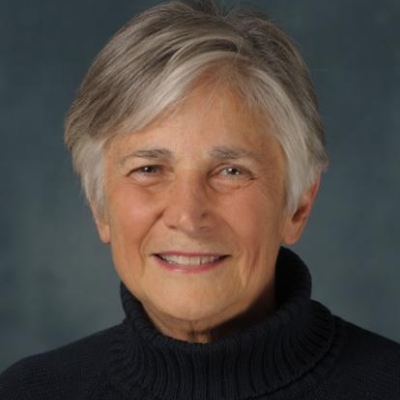Diane Ravitch (see here) is a research professor and educational historian at New York University, a non-resident senior fellow at the Brookings Institution, a former assistant U.S. secretary of education, a nationally renowned education expert and author, and a Thomas B. Fordham Institute/Foundation board member. She has authored seven books, including The Language Police: How Pressure Groups Restrict What Children Learn. This editorial was adapted from a presentation she gave Feb. 24 in Washington, D.C., as part of a panel discussion concerning the proper role of skills in the curriculum. The event was sponsored by Common Core (see here). Ravitch's concerns about 21st century skills are particularly relevant to Ohio where Gov. Ted Strickland is seeking to rewrite the state's standards (see above) to focus more on the acquisition of 21st century skills (see here).
In the land of American pedagogy, innovation is frequently confused with progress, and whatever is thought to be new is always embraced more readily than what is known to be true. Thus, policymakers, thought leaders, and elected officials in Ohio and other states are rushing to get aboard the 21st century skills express train, lest they appear to be old-fashioned or traditional.
So, I was not surprised, a few days ago, to receive an e-mail from Professor John Richard Schrock, director of biology education for Emporia State University in Kansas. He complained that a group of school superintendents in Kansas is pushing a form of "21st Century Learning" that directs veteran science teachers to shut up and assign students to "independent learning." Teachers are not to speak much and then only to give directions. Students are to work on projects to learn scientific concepts on their own. The Kansas Board of Education is not exactly happy with the specifics of what this group has proposed. Still, the board has endorsed its own version of 21st century learning. "It is no longer important," according to the board, "what bits of information a student knows, but only that students be able to locate information."
As a historian of education, I have often written about the educational enthusiasms of the past century, the bouts of infatuation, and the rise and fall of one fad after another. The same ideas have been iterated and reiterated by pedagogues across the decades as they searched for the ultimate breakthrough that would finally loosen the shackles of subject matter and content. The basics of the 21st century skills movement are not new but simply the dusted and polished version of century old thinking.
In 1911, for example, the dean of the education school at Stanford thought it foolish to saturate students with "a mass of knowledge that can have little application for the lives which most of them must inevitably lead." A few years later, in 1918, William Heard Kilpatrick, a fabled Teachers College professor, urged that, instead of a sequential curriculum laid out in advance, boys and girls should engage in hands-on projects derived from their own interests.
In the 1930s, many educators endorsed the idea of replacing high-school courses like science and history with interdisciplinary courses, which they called the "core curriculum" or "social living." Some districts merged several disciplines-English, social studies, and science-into a single course focusing on life experiences instead of subject matter. Occasionally, there were protests. In Roslyn, N.Y., parents were incensed because their children couldn't read but spent an entire day baking nut bread. The school superintendent, however, assured them that baking nut bread was an excellent way to learn mathematics.
In the 1950s, it was known as the Life Adjustment Movement; in the 1980s, as Outcome Based Education. Schooling needed to be relevant, hands-on, and directed to the real interests and needs of young people. In the early 1990s the U.S. Secretary of Labor's Commission on Achieving Necessary Skills recommended exactly the kinds of functional skills that are now called 21st Century skills. I recall hearing the commission director say that students didn't need to know anything about the Civil War or how to write a book report; these were obsolete kinds of skills and knowledge.
None of these initiatives survived, although they did leave American education with a deeply ingrained suspicion of academic studies and subject matter. In our schools of education, we should have been educating future teachers to be experts in their subjects. We should have been helping teachers determine ways to light up young minds with genuine excitement about historical imagination or scientific discovery.
Instead, we have numbed the brains of future teachers with endless blather about process and abstract-thinking skills. We have taught them about graphic organizers and Venn diagrams and data-based decision-making, rubrics, and leveled libraries, but we have ignored what matters most. We have neglected to teach them that one cannot think critically unless one has quite a lot of knowledge to think about. One thinks critically by comparing and contrasting and synthesizing what one has learned. One must know a great deal before she or he can reflect on its meaning and look for alternative explanations.
The new century has brought, again, the need to appreciate that much important knowledge is not acquired "hands-on." The educated person learns not only from his or her own experience, but also from the hard-earned experience of others. We do not restart the world anew in each generation. We stand on the shoulders of those who have gone before us. What matters most in the use of our brains is our capacity to make generalizations, to learn from the experience of others. The intelligent person, the one who truly is a practitioner of critical thinking, has the learned capacity to understand the lessons of history, to indulge in the adventures of literature, and to realize the meaning of philosophical debates by studying them.
Until we teach our teachers and our students to love knowledge and to love learning, we cannot expect them to use their minds well.
